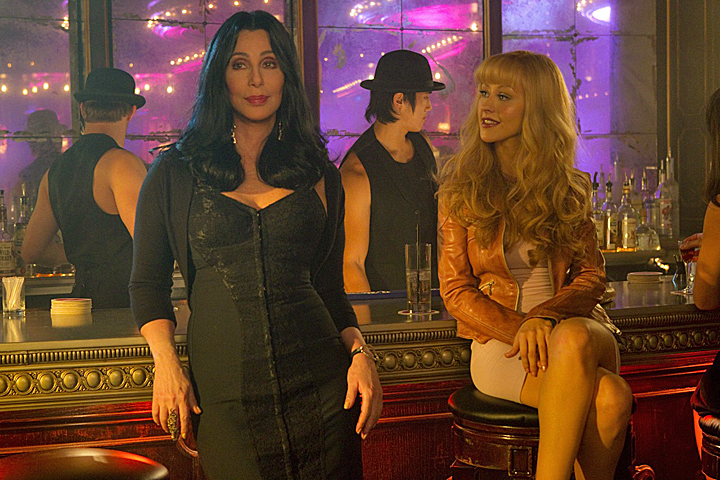Q: Last summer I moved from Vancouver to Toronto, pretty much just so I can attend the film festival here; during my spare time, I am a Ph.D. student studying physics at the University of Toronto. I am curious as to how Toronto Film Festival’s People’s Choice Award is determined each year. Surely there are many variables involved in the balloting and interpretation of the results.
I experienced first-hand how well-received “Juno” was at TIFF this year. The entire audience at the Ryerson theater went completely nuts when the credits started rolling, and the standing ovation, punctuated with whistling and roars of approval, was the loudest and longest I had ever witnessed. I am somewhat suspicious about Cronenberg’s “Eastern Promises” winning the People’s Choice while “Juno” was only the first runner-up.
Antony Chen, Toronto
A. I was once walked through the process by Piers Handling, the festival’s chairman and CEO. They try to avoid ballot accumulation by offering one ballot to each person leaving the theater, and expecting them to vote then and there. They factor in theater capacity, so a film’s popularity is seen independently of its audience size. And they consider what percentage of an audience chooses to vote after each film (a way of measuring how strongly feelings run).
I also witnessed that astonishing ovation after the “Juno” screening and expected it to win People’s Choice. But “Eastern Promises” is far from a ringer; it is a remarkably good film, and Cronenberg is a festival favorite, so I’m sure the vote was legitimate.
Q. Re your article on people using the wrong aspect ratios on their wide-screen TVs: So here I am in Rochester at the AMIA convention, the Association of Moving Image Archivists — people from the studios and the archives and so on. Last night was the opening night get-together at George Eastman House. And there’s a new flat-screen monitor at the front of the building, showing clips of movies that have been restored. You know where I’m going with this: The picture was stretched. At the AMIA. At the Eastman House. In a room full of film fanatics. And nobody was doing anything about it. So I found the remote behind the monitor and fixed it. Nobody noticed that, either.
Jeff Joseph, Sabucat Productions, Los Angeles
A. I wish I didn’t, but I believe you.
Q. Whoa, there! Before you lump all wide-screen TV owners into the “my screen just has to be full of picture” group, it may help to know that when we purchased our wide-screen TVs we were told not to run it in 4:3 mode for “long periods” or else we would suffer the agony of “screen burn-in” — a condition where the unused areas to the left and right of the 4:3 image would be permanently burned into the screen. A condition which, we were pointedly told over and over again, would NOT be covered by our warranty. Unfortunately, neither the salespeople nor the manual tells us how long a “long period” is, so for some folks, taking the chance of losing a $3,000-plus investment has us cowed.
Dan Buchanan, Carlisle, Pa.
A. Here’s a helpful message from Kenneth Lu of Sunnyvale, Calif.: “Plasma TVs suffer from a problem called ‘burn-in,’ so that if you’re viewing ‘pillarboxed’ images with black bars on both sides of the screen all the time, eventually the middle and sides of the screen will have different shades. The solution they came up with for this problem is to display neutrally toned gray bars on both sides instead of black ones, because the gray bars will cause about as much burn-in as the images in the middle of the screen, on average, so you won’t see different shades in the middle and sides. Of course, this burn-in is not a problem with LCD HDTVs so there’s no good reason for people with newer LCD HDTVs not to use black pillarboxing.”
Q. What is the Official Rule of Critic’s Conduct regarding stepping out of a movie screening to use the facilities?
Nathan Weinbender, Spokane, WA
A. Do so.
Q. I was wondering what you thought of Variety editor Peter Bart’s attack on Matt Damon. I’m kinda shocked that a media guy would call out Damon for being too personal and not “living the Hollywood lifestyle.” Were you as shocked as I was?
Peter Goss, Lake in the Hills
A. I think celebrities have a right to guard their privacy however they damn well please. In interviews, I avoid questions about romance, religion, sex and scandal. If the celebrities bring up such matters, that’s their privilege. I’m sure Bart was being satirical when he advised Damon: “A forced trip to rehab under a police escort would make a good piece on ‘Extra.’ ” But why all that weirdness about Damon being a Harvard man? And why the jab at Marlon Brando‘s weight?
Q. I see in your review for “In the Shadow of the Moon” that the MPAA classifies it PG for, among other things, “incidental smoking.” Really? They’re really going through with the smoking thing? What does “incidental” mean in this context? If there were more smoking, would it have gotten a harsher rating? Is the MPAA prepared to reclassify all movies with smoking now, from “Casablanca” to, say, “Reality Bites“?
Keith Ogorek, Philadelphia
A. The MPAA “considers” smoking in its ratings, and it seems to block a G rating. CBS News reported recently that a study “tracked more than 6,500 kids between the ages of 10 and 14, over a two-year period. Dartmouth researchers say young people who had the greatest exposure to smoking scenes are twice as likely to become ‘established’ smokers.” And Prof. Stanton Glantz of the University of California Medical School told CBS: “Movies are the single largest influence getting kids to smoke today, more powerful than parenting role models and even cigarette advertising.”
My question: How accurately can you track the exposure of 6,500 kids to smoking scenes over a period of two years? Sounds to me like counting raindrops.
Q. The latest blast in your war of words about video games with the British horror writer Clive Barker has been reported on the Gaming Today Web site, which relays that on a Digital Trends podcast, Barker said, “Ebert’s a pompous, arrogant old man, and he’s not going to stop us from making games or enjoying them or making them art.” Your thoughts?
Greg Nelson, Chicago
A. Dear Mr. Barker: I have much to be pompous and arrogant about, having just been declared America’s No. 1 pundit by Forbes magazine. But I cannot deny my advanced age, which makes me fully nine years older than you. What strikes me about your comment is its poverty of imagination. My broadside was fired on July 22. You have pondered it for more than two months, and this pathetic bleat is the best you could produce? The British were once known for their rapier wit, but I am afraid bandinage of this caliber will not get you into the Leatherhead and Dorking Debating Society, let alone the House of Lords.
Heavens, Mr. Barker, I would never dream of stopping you from making video games or enjoying them, and if you can make them art, I applaud you. To show my heart is in the right place, I am accompanying this reply with the same photograph of you that I used on July 22. Your self-effacing modesty is apparent.












